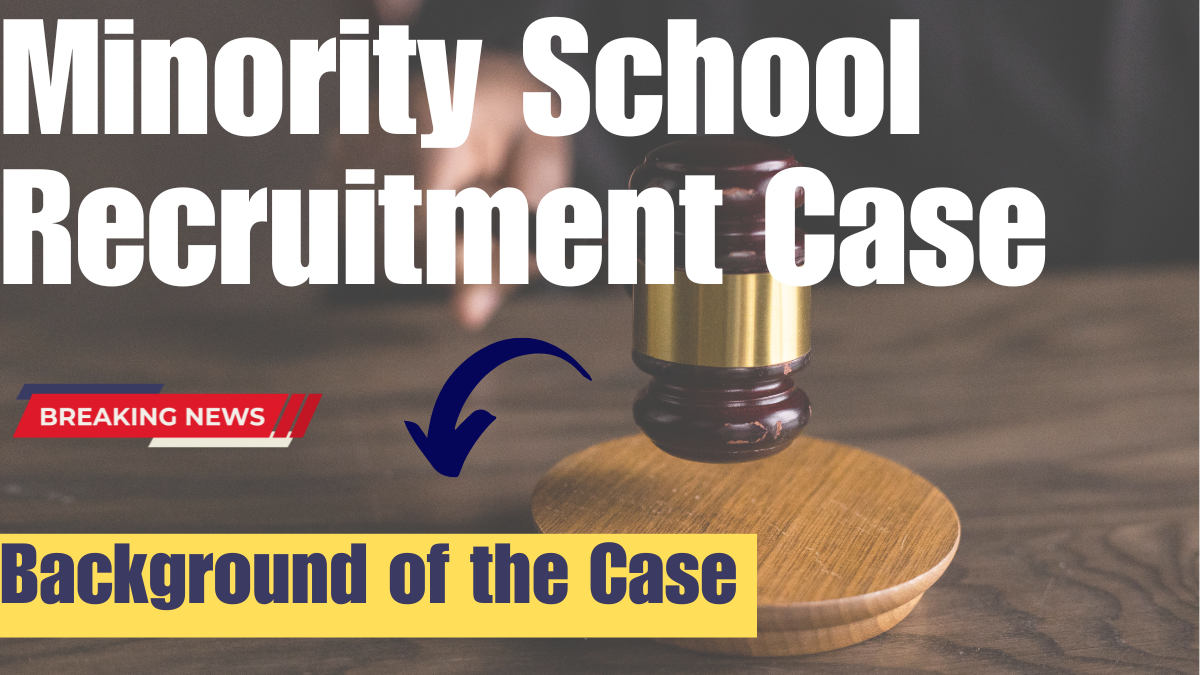The Supreme Court of India has agreed to examine a plea challenging the Gujarat High Court’s decision that upheld the 2021 amendments to the Gujarat Secondary and Higher Secondary Education (GSHSE) Act. These amendments allow the state government to regulate the recruitment of teachers and principals in linguistic and religious minority schools in Gujarat.
A bench comprising Justices Surya Kant and N. Kotiswar Singh issued a notice to the Gujarat government, directing them to respond. However, the Court refused to stay the implementation of the amendments, emphasizing the importance of hearing both sides before making a final decision.

Background of the Case
The case stems from a challenge filed by St. Xavier’s High School Loyola Hall and other petitioners. Senior Advocate CU Singh, representing the petitioners, argued that the Gujarat High Court’s decision ignored the judgments of larger benches of the Supreme Court, including the nine-judge and eleven-judge benches.
Singh asserted that while the state government could lay down minimum qualifications and criteria for recruitment, it should not have the power to influence the selection of principals and teachers in minority institutions. He added that the state-appointed committee responsible for these selections had no representation from the minority community, despite claims from the Gujarat High Court that the selection committee should predominantly include members from the minority community.
Gujarat High Court’s Decision
On January 23, 2025, the Gujarat High Court upheld the 2021 amendments to the GSHSE Act. The court stated that while the state’s power to regulate recruitment was not unlimited, the language of the amendments did not infringe on the rights of minority institutions under Article 30 of the Constitution. Article 30 guarantees minorities the right to establish and administer educational institutions of their choice without government interference.
The high court ruled that although the state has the authority to regulate recruitment, this power must be exercised with safeguards to protect the autonomy of minority institutions.
Next Steps
The Supreme Court’s decision to examine the case raises significant questions about the balance of power between state regulation and the rights of minority institutions to manage their own affairs. The matter is set to unfold in the coming weeks, as the court will hear arguments from both the Gujarat government and the petitioners.
FAQs
What is the Gujarat Secondary and Higher Secondary Education (GSHSE) Act?
The GSHSE Act regulates education in Gujarat, including recruitment policies for teachers and principals in schools, including minority-run institutions.
Why is the Supreme Court hearing this case?
The Supreme Court has agreed to hear a plea challenging the Gujarat High Court’s ruling that upheld amendments to the GSHSE Act, allowing state regulation of recruitment in minority schools.
What did the Gujarat High Court decide?
The Gujarat High Court upheld the 2021 amendments to the GSHSE Act, stating that the state’s power to regulate recruitment does not infringe on minority institutions’ rights under Article 30 of the Constitution.
What is the significance of this case?
This case raises important questions about the balance of power between state regulation and the autonomy of minority educational institutions.
Click here to know more.
